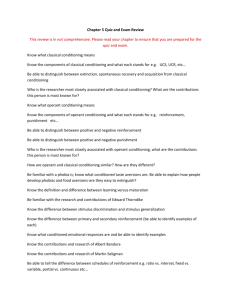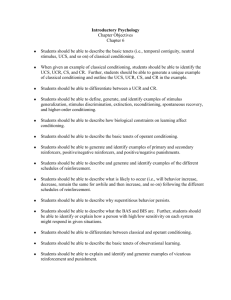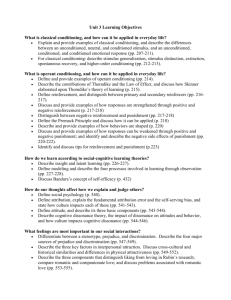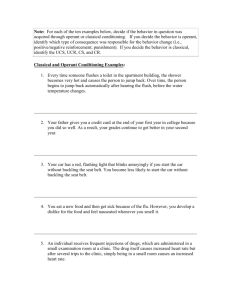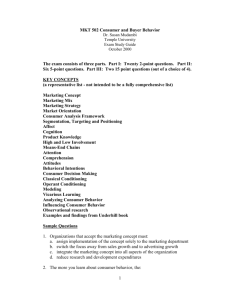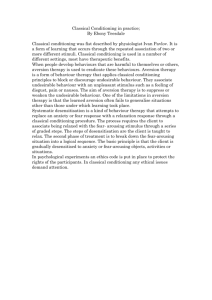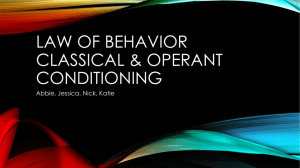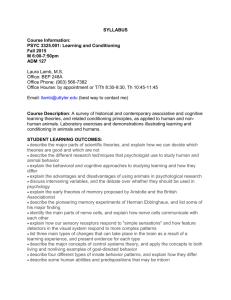Timeline of the behaviourist ap e of the
advertisement
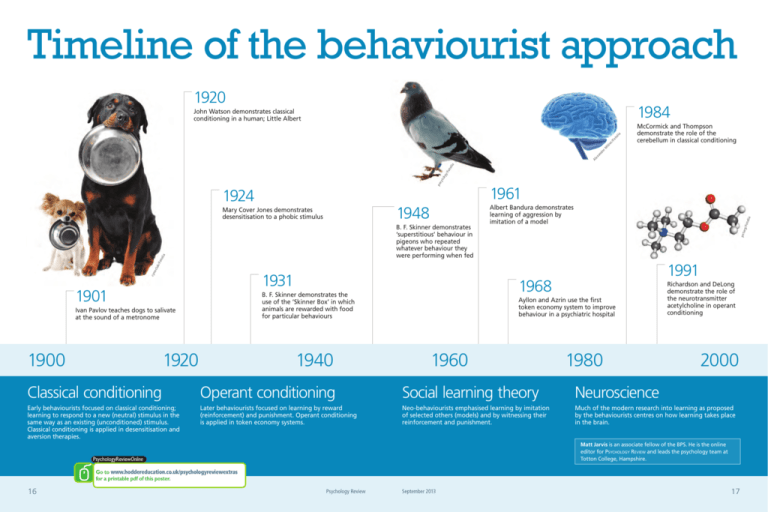
Timeline of the behaviourist approach 1920 1984 McCormick and Thompson demonstrate the role of the cerebellum in classical conditioning lia /Fo tol ia B. F. Skinner demonstrates ‘superstitious’ behaviour in pigeons who repeated whatever behaviour they were performing when fed Albert Bandura demonstrates learning of aggression by imitation of a model oto 1948 Mary Cover Jones demonstrates desensitisation to a phobic stimulus 1961 rg /F 1924 pet a pe ryt sk yy /Fo to lia Al ex an de rM iti uc /F ot ol ia John Watson demonstrates classical conditioning in a human; Little Albert ocl ub 1991 cyn 1931 1901 B. F. Skinner demonstrates the use of the ‘Skinner Box’ in which animals are rewarded with food for particular behaviours Ivan Pavlov teaches dogs to salivate at the sound of a metronome 1900 1968 1920 1940 Ayllon and Azrin use the first token economy system to improve behaviour in a psychiatric hospital 1960 1980 Richardson and DeLong demonstrate the role of the neurotransmitter acetylcholine in operant conditioning 2000 Classical conditioning Operant conditioning Social learning theory Neuroscience Early behaviourists focused on classical conditioning; learning to respond to a new (neutral) stimulus in the same way as an existing (unconditioned) stimulus. Classical conditioning is applied in desensitisation and aversion therapies. Later behaviourists focused on learning by reward (reinforcement) and punishment. Operant conditioning is applied in token economy systems. Neo-behaviourists emphasised learning by imitation of selected others (models) and by witnessing their reinforcement and punishment. Much of the modern research into learning as proposed by the behaviourists centres on how learning takes place in the brain. Matt Jarvis is an associate fellow of the BPS. He is the online editor for PSYCHOLOGY REVIEW and leads the psychology team at Totton College, Hampshire. PsychologyReviewOnline Go to www.hoddereducation.co.uk/psychologyreviewextras for a printable pdf of this poster. 16 Psychology Review September 2013 17




